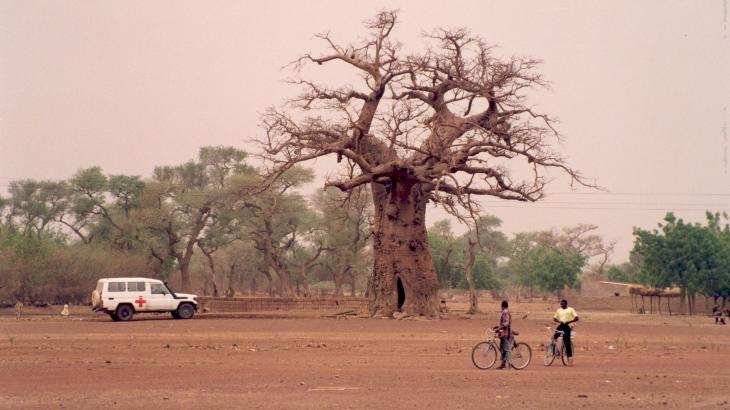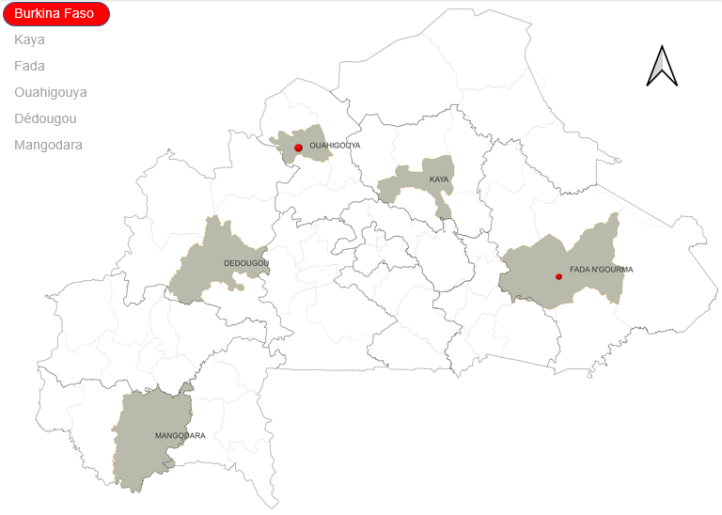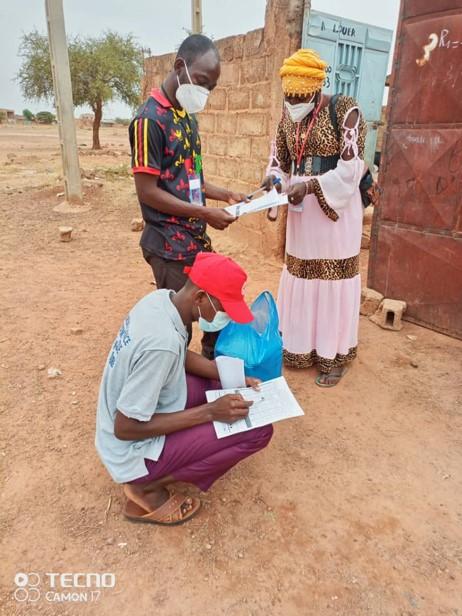Dates of implementation: 2021- present
Setting: Rural / Towns
CBS context: Preparedness
Data collection system: SMS & Excel
Support: US CDC, ECHO, Belgian Red Cross, Norwegian Red Cross, IFRC, ICRC
Burkina Faso is facing a persistently high burden of morbidity due to communicable diseases like Malaria, Measles, or Dengue fever. In recent years, vaccine preventable diseases have steadily increased again even after a significant decrease had been achieved. Due to the emergence and intensification of armed conflicts in northern regions of the country, the access to health care is seriously affecting a large part of the population. Access for humanitarian actors to assist vulnerable people, medical evacuations and the supply of medical inputs is highly limited which endangers health workers and the health infrastructure. At the end of June 2021, Burkinabe Red Cross Society, together with the Belgium Red Cross and support of the Norwegian Red Cross, started to implemented CBS in Kaya. From 2021 to April 2023 Burkinabe Red Cross with support from the US CDC and IFRC implemented CBS in the two conflict-affected regions of Fada and Ouahigouya, and in 2022 with support of Belgian Red Cross and ECHO, Burkinabe Red Cross began implanting CBS in Dedougou and Mangodara. Ongoing discussions have continued with IFRC, Norwegian Red Cross and ICRC on the sustainability of CBS in several health districts and linking CBS to additional health programs.
Health risks/events under surveillance
| Health risks reported on using signs and symptoms aligned with priority diseases |
|---|
| Acute watery diarrheal disease |
| Bloody diarrhea |
| Fever and bleeding |
| Fever with yellow eyes, palms and feet |
| Fever and neck stiffness |
| Fever and Rash |
| Cough and difficulty breathing |
| Neonatal tetanus |
| Acute flaccid paralysis |
| Unusual Event |



